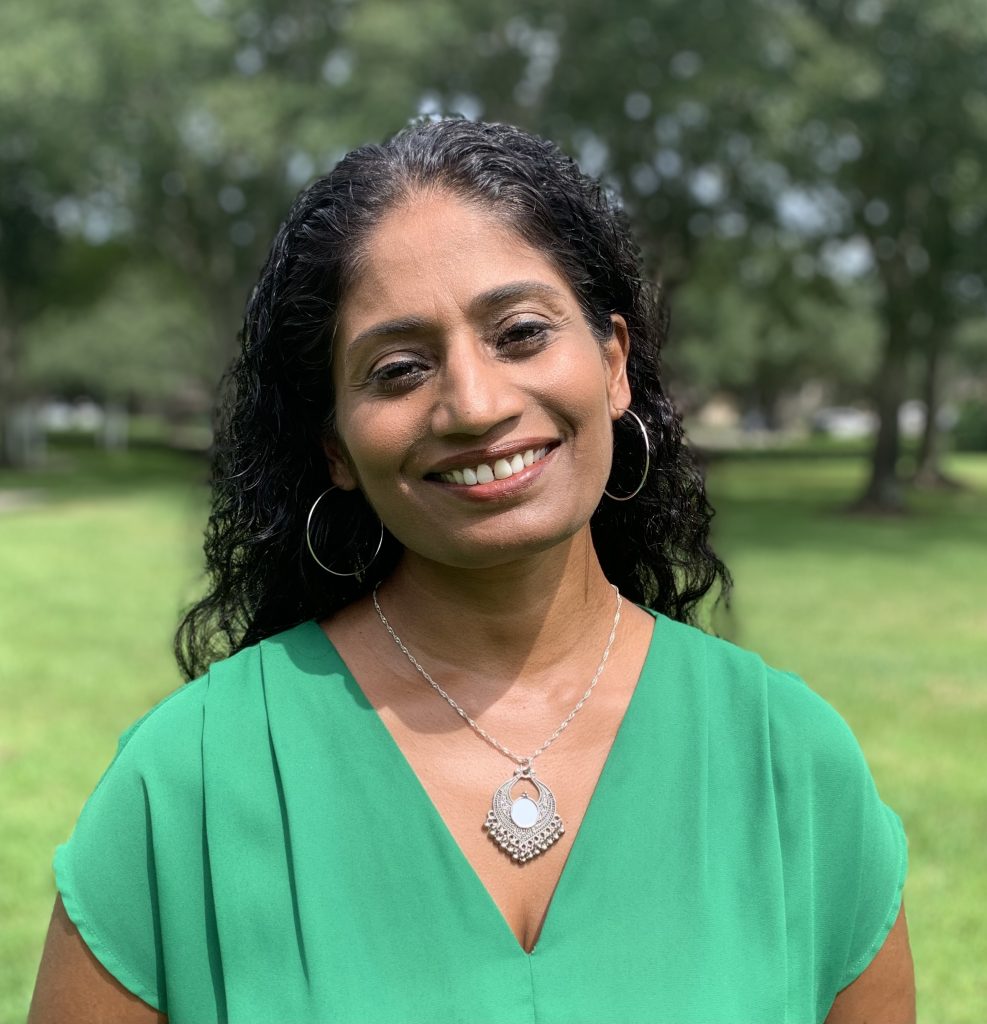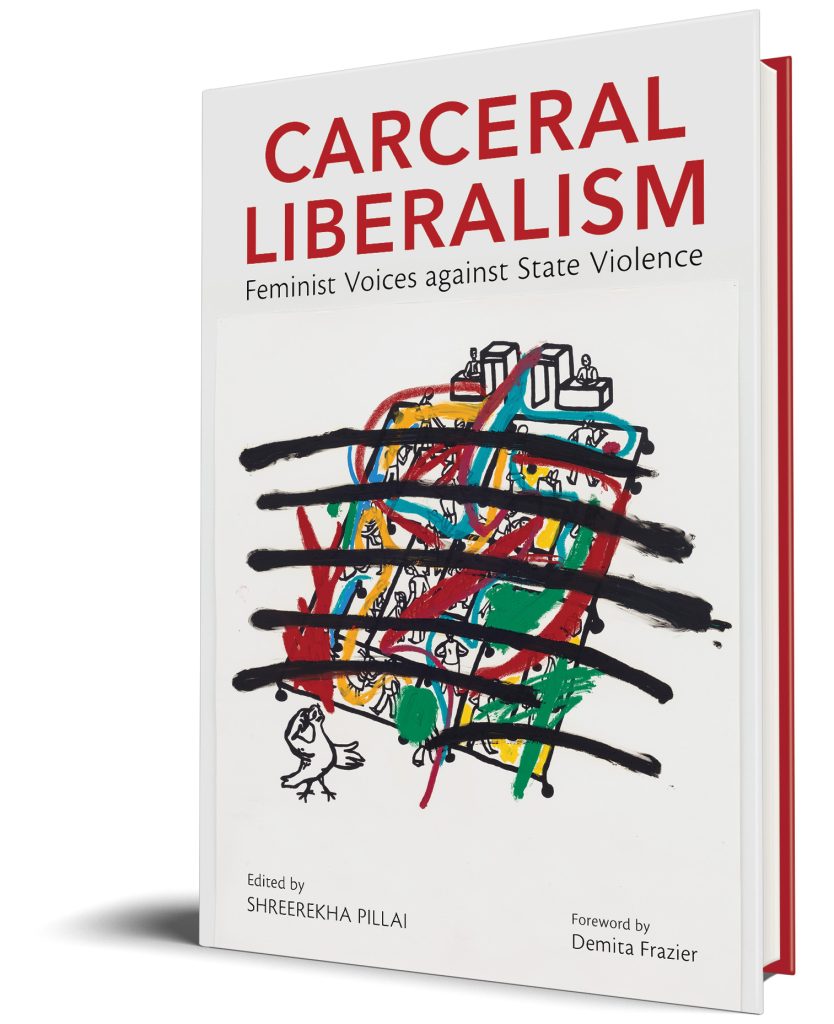Shreerekha Pillai, editor of Carceral Liberalism: Feminist Voices against State Violence, answers questions on her new book.
Q: Why did you decide to write this book?
This is a case of a book that has been percolating for all the years I have taught, traveled in the various cities where I lived – Baltimore, New York City, Houston, and reflected on the nature of democracy in the two modern nation-states that have framed my life – India and the United States. Democracy always felt like an illusion or a wound and the sharper we focused, the more the prison-like labyrinth of the state emerges in relief. We can rub it raw until it hurts, or let it disappear and be amnesiacs, or we could write about it.
More specifically, I wrote this book out of a successful panel I pulled together at the National Women’s Studies Association annual conference in Baltimore in 2017 where the radical Black feminist activists of the 1970s, including some of the original writers of the Combahee River Collective sojourned with a more contemporary generation of activists. NWSA has been an academic home for me and as such, a generative space of intellectual query. I led a panel on state violence and its manifestations in the prison state. Out of it, I was inspired to pull together an edited volume project and felt the book could have a home in the Dissident Feminisms series led by University of Illinois Press. And finally, it did!
Q: What is the most interesting discovery you made while researching and writing your book?
Your most interesting ideas emerge in the long-drawn out process of revision that is iterative and can stretch into years. For an edited volume, it is the hidden labor of pulling together a diverse array of contributors from different spheres, disciplines and geographies and turning it into a community of voices. And if you have the stamina, will, and perseverance, you will begin to see the shape of a beautiful manuscript emerge from the years of intellectual labor, as happened with this book that includes first person accounts, academic critiques, activist labors and poetic meditations.
While the physical manifestation of the prison is everywhere in the democratic fabric, the promise of liberation is also present in every stitch.
Q: What myths do you hope your book will dispel or what do you hope your book will help readers unlearn?
Liberalism is much closer to prisons than freedom.
Liberalism sounds a homonymic alliterative promise of liberation but what manifests materially and tangibly for the most vulnerable inhabitants of the democratic state is often dispossession, disenfranchisement and exile.
Prisons were born in the shadow created by Enlightenment.
These dark places of modernity should not leave citizens comforted by the ‘lock ‘em up and throw away the key’ myth because the truth is, the carceral state is omnipresent. Within the walls and beyond, within the invisible lockdown of the prison state, carcerality leaves its residents in a state of heightened anxiety, fear, and alienation from oneself and others.
Q: Which part of the publishing process did you find the most interesting?
The most illuminating part for me were the many stages involved in bringing such a project to life – from the seed of an idea germinating within me as I taught in the prison classroom for many years, the seminar at the conference, the call for papers, the contributions that came pouring in, the many seasons of revisions that involved responding to the thoughtful and crucial peer reviews, the back and forth of editing and coalescing the project as it took shape – much of it felt like whittling, chiseling, gleaning, sculpting, verbs that have to with labor-intensive skills performed lovingly with one’s own hands. There is a ‘making’ of a thing that really became the most interesting aspect in the years of work it took to realize this project.
Q: What is your advice to scholars/authors who want to take on a similar project?
Don’t give up!
Might feel like a cliché but what kept me going through the years were the fantastic contributors to this volume and the generous poets whose combined work kept me energized. And I have to give props to my students in the prison whose regular question, through the years, “When is the book coming out?” kept me hammering away till the work could finally see the light of day.
Q: What do you like to read/watch/or listen to for fun?
Everything. We’re swimming in simulacra and I enjoy televised serials from Finland to South Africa, Argentina to Japan. Often feel like an insatiable content-consuming beast. And of course, I love podcasts, especially “Ear Hustle,” “Prison Talk” and “Prison from Behind his Bars.” And to name a few recent books that have reinvigorated my sense of being are Karla Cornejo Villavicencio’s The Undocumented Americans, Jennifer McCauley’s When Trying to Return Home, Anjali Enjeti’s Southbound, Viet Thanh Nguyen’s The Refugees, Eric Nguyen’s Things We Lost to the Water, Clint Smith’s How the Word is Passed, Perumal Murugan’s Pyre, Min Jin Lee’s Pachinko, and a little book by David Foster Wallace, which is really a speech, This is Water. That one I read aloud to those who listen.
Nothing. Sometimes it is really nice to be in quiet, without any stimulations, except for my canine child who keeps me attentive to what is beneath me – the pavement, thorns, nettles, worms, stones, and grass.

Shreerekha Pillai is a professor of humanities at the University of Houston, Clear Lake. She is the author of Women Writing Violence: The Novel and Radical Feminist Imaginaries.

